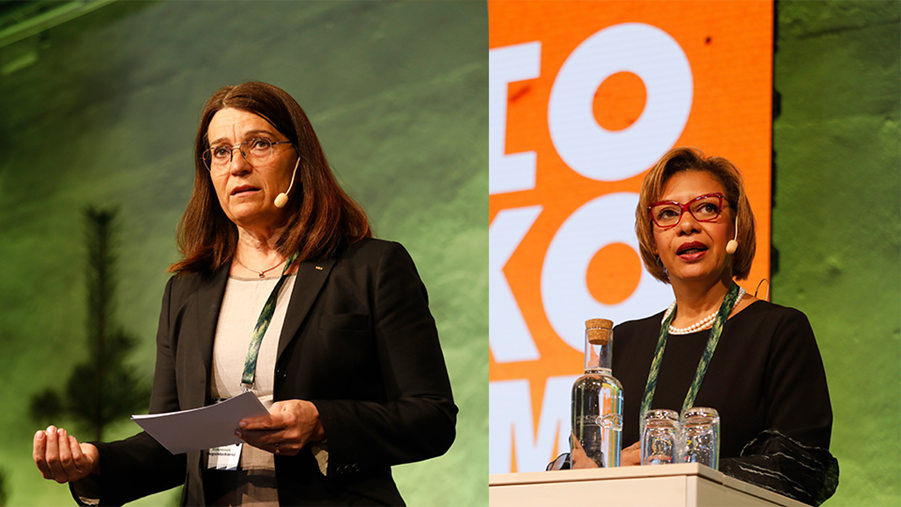
Sign up for future events
We are planning events in Brussels of how bioeconomy can help mitigate climate change and is ever present in our everyday life today.

As part of commitments to sustainable development and sustainable forest management, the forest industry has a key role in conserving biodiversity and other ecosystem services and, by so doing, maintaining the ecological functions and the integrity of forests.
"Adaptation to climate change will pose new challenges and opportunities on forest management and conservation to ensure forest health while avoiding setbacks such as insect outbreaks or unwanted fires" says Carina Håkansson, Director General, Swedish Forest Industry Federation, attending the International Conference on Forest for Biodiversity and Climate in Brussels organized by DG Environment.
The EU and the world are facing major challenges linked to climate change and biodiversity. It is made clear in both IPCC's special report on climate change and land and IPBES' report on biodiversity from last year.
"In this context we need a discussion founded on evidence-based, reviewed and cited research", says Carina Håkansson, underlining the message from EVP Timmermans that all stakeholders need to contribute in finding synergies for the future policy development.
EU biodiversity ambitions must resonate with the European Commission's initiative for a European Green Deal, aiming for "a fair and prosperous society, with a modern, resource-efficient and competitive economy where there are no net emissions of greenhouse gases in 2050 and where economic growth is decoupled from resource use".
"The upcoming 2030 Biodiversity Strategy as well as the Forest strategy must acknowledge the importance of strengthening the role of forests and forest-based products in climate change mitigation. The targets in these strategies must be realistic and thoroughly assessed with a holistic perspective including environmental, economic and social aspects" says Carina Håkansson.
The impact of EU consumption on global deforestation and forest degradation was discussed at the conference, as a legislative proposal is expected from the EU Commission to assure deforestation-free products for EU consumers. Furthermore, how to build partnerships with producing countries to protect and restore forests in their countries was also at focus.
"Setting clear objectives, understanding the context, creating benefits for all parties and multi-stakeholder dialogue are important parameters to create successful partnerships. But don´t forget the people. Deforestation is poverty driven. If the partnerships do not improve people's livelihoods, they will not be successful", says Thais Linhares-Juvenal, Team Leader Forest Governance and Economics at FAO.
Since early 1990, the Swedish forest sector actively works with biodiversity as an integrated part of sustainable forest management defining production and environment as equal objectives. The Swedish forest owners are assumed to contribute to both production and environmental objectives by carrying out sustainable and profitable forest management.
Storgatan 19
Stockholm
Box 55525, 102 04 Stockholm, Sweden
+46 (0)8-762 72 60
We use cookies to improve your browsing experience (Swedish text)
Privacy policy (Swedish text)